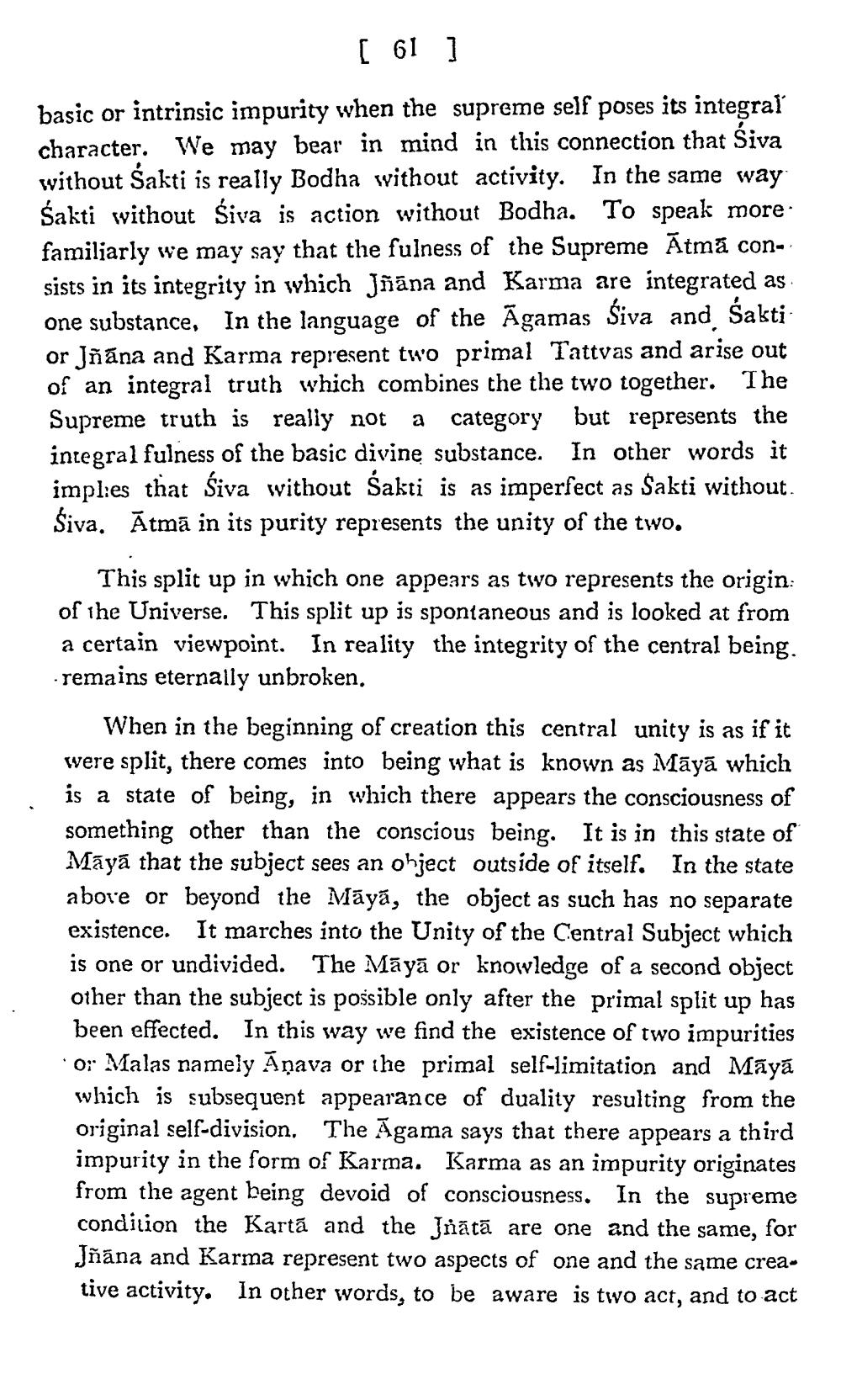________________
[ 61 ]
basic or intrinsic impurity when the supreme self poses its integral character. We may bear in mind in this connection that Siva without Sakti is really Bodha without activity. In the same way Śakti without Śiva is action without Bodha. To speak morefamiliarly we may say that the fulness of the Supreme Ātmá consists in its integrity in which Jñāna and Karma are integrated as one substance. In the language of the Agamas Siva and Sakti or Jñana and Karma represent two primal Tattvas and arise out of an integral truth which combines the the two together. The Supreme truth is really not a category but represents the integral fulness of the basic divine substance. In other words it implies that siva without Sakti is as imperfect as Sakti without. Siva. Ātmā in its purity represents the unity of the two.
This split up in which one appears as two represents the origin: of the Universe. This split up is spontaneous and is looked at from a certain viewpoint. In reality the integrity of the central being. · remains eternally unbroken.
When in the beginning of creation this central unity is as if it were split, there comes into being what is known as Māyā which is a state of being, in which there appears the consciousness of something other than the conscious being. It is in this state of Māyā that the subject sees an ohject outside of itself. In the state above or beyond the Māyā, the object as such has no separate existence. It marches into the Unity of the Central Subject which is one or undivided. The Māyā or knowledge of a second object other than the subject is possible only after the primal split up has been effected. In this way we find the existence of two impurities : 0: Malas namely Anava or the primal self-limitation and Māyā which is subsequent appearance of duality resulting from the original self-division. The Agama says that there appears a third impurity in the form of Karma. Karma as an impurity originates from the agent being devoid of consciousness. In the supreme condition the Kartā and the Jnātā are one and the same, for Jñāna and Karma represent two aspects of one and the same creative activity. In other words, to be aware is two act, and to act




